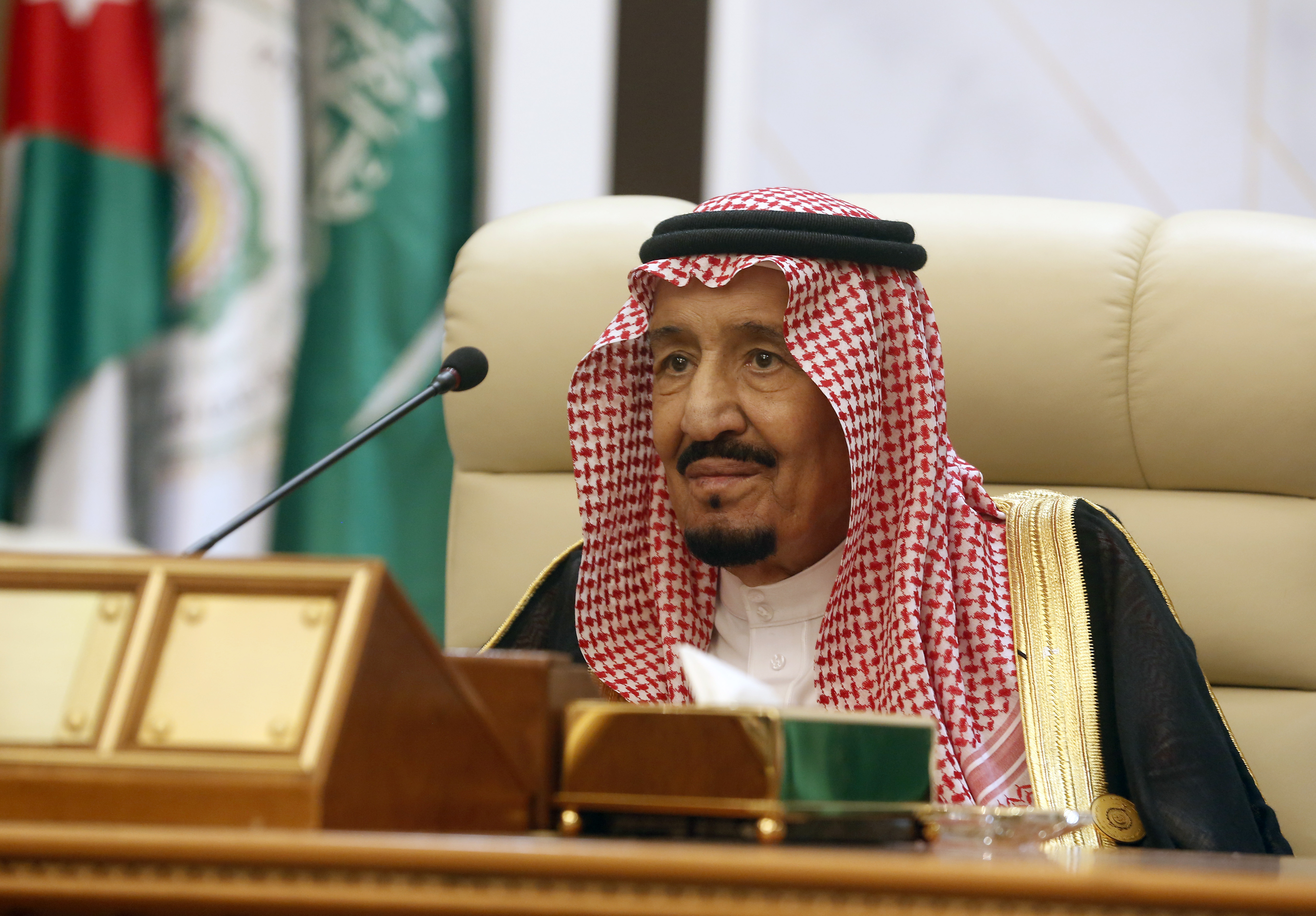
Saudi King Salman chairs an emergency summit of Gulf Arab leaders in Mecca, Saudi Arabia, Thursday, May 30, 2019. King Salman opened an emergency summit of Gulf Arab leaders in the holy city of Mecca on Thursday with a call for the international community to use all means to confront Iran, but he also said the kingdom extends its hand for peace. (AP Photo/Amr Nabil)
MECCA, Saudi Arabia — Saudi Arabia’s King Salman on Saturday warned that “terrorist” attacks in the Gulf region could imperil global oil supplies, as he sought to galvanize support among Islamic countries against arch-rival Iran.
The king was speaking at a meeting of the 57-member Organization of Islamic Cooperation (OIC), the third and final Tehran-focused summit in the holy city of Mecca, marked by the notable absence of Iran and Turkey’s leaders.
The world’s top oil exporter has ratcheted up tensions with Iran after sabotage attacks damaged four vessels, two of them Saudi oil tankers, off the UAE and twin Yemeni rebel drone attacks shut down a key Saudi oil pipeline.
Tehran has strongly denied involvement in any of the attacks.
“We confirm that terrorist actions not only target the kingdom and the Gulf region, but also target the safety of navigation and world oil supplies,” the king told OIC member states.
In a tweet just before the start of the summit, the king vowed to confront “aggressive threats and subversive activities”.
“Undermining the security of the kingdom effectively undermines the security of the Arab and Islamic world, and the Organization of Islamic Cooperation calls for a position on the attacks on the kingdom” said OIC Secretary-General Yousef bin Ahmed al-Othaimeen.
In the previous two back-to-back summits on Friday, Gulf and Arab allies rallied around Saudi Arabia, which drew accusations from Iran of “sowing division”.
The summits came after Trump’s hawkish National Security Advisor John Bolton said Wednesday that Iranian naval mines were “almost certainly” responsible for the damage to the four ships off the United Arab Emirates on May 12.
The findings of a five-nation inquiry into what happened have yet to be released.
Tehran dismissed Bolton’s accusation as “laughable” and accused him of pursuing “evil desires for chaos in the region”.
Regional tensions have grown since US President Donald Trump’s administration reimposed sanctions against Iran after Washington unilaterally pulled out of a multilateral 2015 nuclear accord signed with the Islamic republic.
But Trump appeared to soften his hawkish tone towards Tehran, saying during a visit to Japan on Monday that his government does not seek “regime change”.
Erdogan absent
Turkey’s President Recep Tayyip Erdogan was notably absent from the key OIC summit, an AFP photographer said.
A regional heavyweight, Turkey was instead represented by its Foreign Minister Mevlut Cavusoglu.
Iran’s President Hassan Rouhani was also not present.
Erdogan’s visit would have been his first to the kingdom since the brutal murder last October of journalist Jamal Khashoggi in the Saudi consulate in Istanbul, which tarnished the international reputation of Crown Prince Mohammed bin Salman.
Khashoggi, a Saudi royal insider and Washington Post contributor was killed and dismembered in what Saudi Arabia said was a “rogue” operation, but CIA analysis leaked to the US media pointed the finger at Prince Mohammed.
Saudi prosecutors have absolved the prince and said around two dozen people implicated in the murder are in custody, with death penalties sought against five men.
But attention has remained focused on whether the crown prince ordered the murder despite the kingdom’s denials.
Erdogan has said the order to murder Khashoggi came from “the highest levels” of the Saudi government but has stopped short of directly blaming Prince Mohammed. /muf